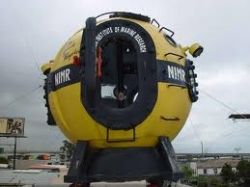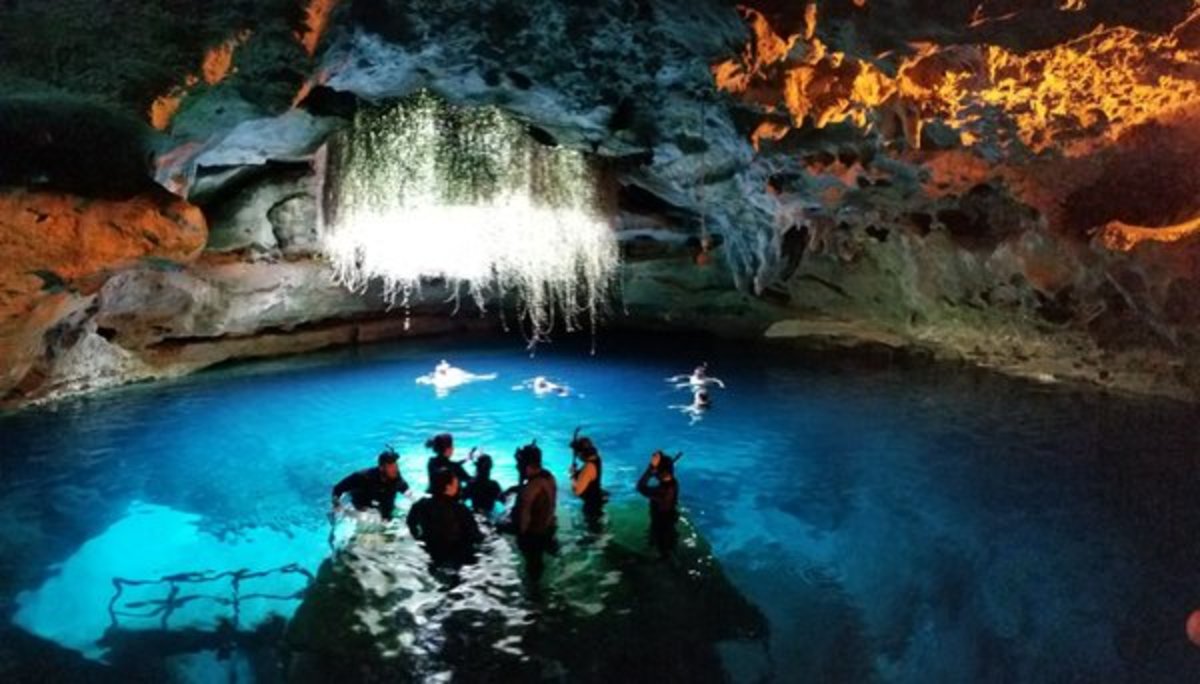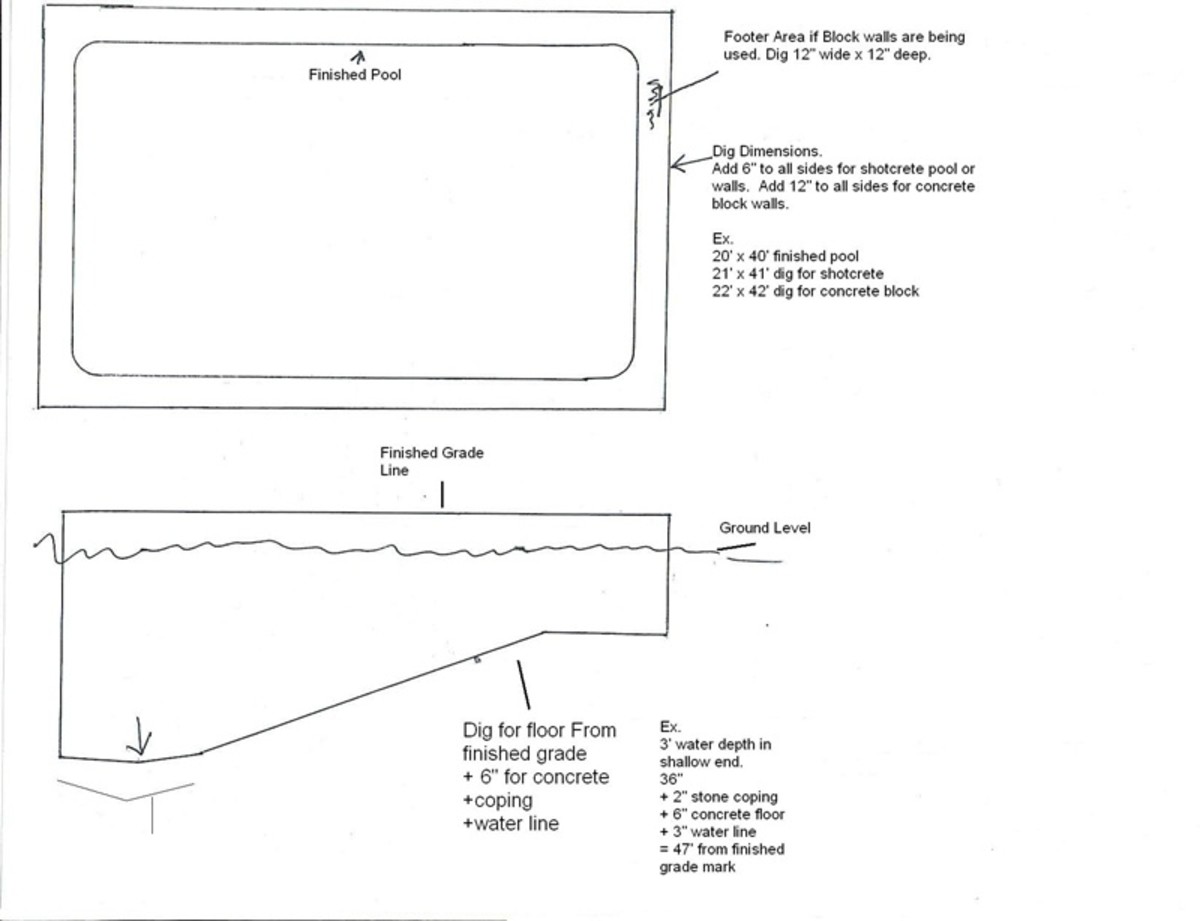How Deep you can go when Scuba Diving

The ocean floor is (almost) the limit in Scuba Diving!
For most scuba divers, they will never go below 40m, which is the maximum recommended depth for recreational diving. Below this depth, decompression stops will be required, which makes it beyond the realm of the inexperienced diver without any tech dive training. However, there are an increasing number of people interested in technical or commercial diving, which push the extreme limits of what our bodies and scuba diving equipment can handle. The current record for open-circuit scuba diving is 330m, and for commercial and military diving, over 600m. These records are sure to be broken by the next generation of underwater adventurers with new equipment that can handle the increased demands!
Want to know more about Technical Diving? - The perfect Christmas or Birthday Gift for a scuba diver

Recreational Diving Depth Limits (40m)
Recreational diving is the kind of diving that the majority of people who scuba dive will do. When you do your Padi Open Water Course (the basic 4 day certification course), the maximum depth limit is 18m. At 18m or less, it's very simple and easy to ascend to the surface in case of any problem. And divers at this experience level really shouldn't go deeper than 18m because they are very inexperienced divers.
The next step in recreational diving is the Padi Advanced Open Water Course. It consists of 5 dives, including one deep dive. It's recommended that these divers reach a maximum depth of 30m. At 30m, it's still possible to ascend to the surface if necessary, but it will have to be done much more slowly.
Finally, the absolute maximum limit in recreational scuba diving is 40m. This depth should only be attained by people who are very experienced (100+ dives). It's also recommended that they take the Padi Deep Diver Specialty Course, which consists of more training and deep dives with an instructor.
What's your deepest dive?

Technical Diving Depth Limits
Technical diving is a step beyond recreational diving, in terms of maximum depths. These kind of dives that are deeper than 40m require more equipment and significantly more planning, often using computers. These dives involve using different gas mixes and often require decompression stops. That is, the diver can't ascend directly to the surface in case of emergency because of these stops.
For an introduction to technical diving, check out Padi's TecRec System. There are 5 basic levels:
Tec 40, Tec 45, and Tec 50. These courses serve as an introduction and will eventually allow you to independently make decompression dives to 50m using air and Nitrox. You'll use computer software to create custom dive tables and plan your dives.
Tec Trimix 65 and Trimix Diver allow you to do training dives as deep as 90m, using various gas blends. It's the final stage in training for Padi's Tec System.
Does diving deep appeal to you?

Commercial Diving Deep Dives
Commercial diving is in a whole new class, set apart from recreational or technical diving depth limits. This is because air is most often supplied from the surface, or the divers live in "bells." The divers ascend and descend in these controlled environments and just exit the bell for short periods of time to do the work they need to perform. They will often spend days in these bells doing the required decompression stops.
The maximum recorded commercial dive was about 610m, but it's believed that military divers have gone deeper.

Deepest Dives Ever Recorded (318.25m)
For open circuit scuba diving (without use of diving bells, or surface-supplied air), the Guinness World Record is 318.25m, set in 2005 by South African Nuno Gomes. He was in the water for a total of 12 hours, mainly because of the massive amount of decompression stops required.
After this dive, Guinness no longer certified deep dives due to concerns about safetey. However, shortly after Gomes broke the record, a French Diver, Pascal Bernabe reached 330m. The depth was independently verified, but not by Guinness.
Verna Van Schalk from South Africa holds the woman's record 221m, set in 2004.
Deep Descent
More Deep Diving Sites to Check Out
- Scuba Records
You could spend hours browsing around this site! - A Journey to 308m
A fascinating account of an extreme deep dive. - Wikipedia
Deep Diving

Why Dive Deep?
For some people at the extreme edge of deep diving, it's the challenge of it that appeals to them. Some people like to set records, no matter what discipline they're involved in. Extreme deep diving is similar to those who want to be the first to summit an unclimbed peak, just to be the first.
For the average deep diver, who does technical diving within limits (under 100m), there are various reasons. Some are bored with recreational diving, and like the added challenge of planning a technical dive, with various gas mixes and using computer programs. Others are interested in deep wrecks or caves, or pristine deep reefs, and so deep diving is a means to this end. Some people just like the darkness, and the quiet, and the stillness of it. It's very peaceful when you go deep.
And finally, for the recreational diver who likes to go down to 30 or 40m, it's often because there are interesting things to see! Perhaps there's a wreck at 40m, or sharks that frequent deeper waters.












